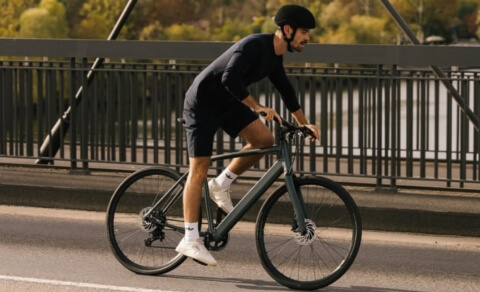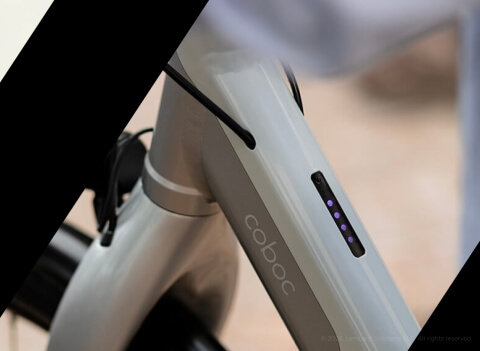
Data acquisition for e-bike battery range prediction
Coboc is a Germany-based lightweight e-bike manufacturer that creates state-of-the-art urban mobility solutions. With the Coboc apps, end users can configure BLE-enabled e-bikes to adapt the vehicles to their needs.
Challenge
The client needed a more accurate way to predict the distance an e-bike can ride with its current battery charge under specific variable conditions. Since Lemberg Solutions was working on the Android and iOS apps for clients’ e-bikes and also had in-house expertise in data science and analytics, Coboc asked for our assistance with data acquisition. Data volume was the main challenge within this project since the scope was truly substantial.
Delivered value
Our team has found a solution to gather the necessary data from users’ e-bikes and mobile apps, store it in the cloud, and extract it. Data engineers and mobile developers collaborated to capture multiple parameters like the signals from the bike, cycler’s weight, road surface type, covered distance, tire pressure, and weather. We also found a convenient and secure way to transfer the acquired data array to the client for further processing.
The story
The project started as a subproject of iOS and Android apps refactoring and redesign we did for Coboc. Since Lemberg Solutions was deeply integrated into the clients’ software development processes and had substantial data science expertise, Coboc asked us to collect the data required to design an e-bike battery range prediction algorithm.
Following its commitment to innovations, the client came up with the idea to gather e-bike data from multiple rides for battery range prediction. The analysis of the signals from the bike, cycler’s weight, road surface type, covered distance, tire pressure, weather, and other parameters affecting battery range would allow the e-bike manufacturer to provide cyclers with more accurate predictions of the distance they can cover. The main goal was to enhance the riding experience, making e-bikes even more convenient and digitized.
After the initial requirements elicitation, Lemberg Solutions engaged mobile, back-end, and data engineers, a QA specialist, and a project manager to complete the project. Moving in iterations, our team:
- Built an iOS app for data collection that would send all necessary parameters from the app to the cloud.
- Configured the cloud server to record and store the collected data.
- Gathered and tested the acquired data to ensure the accuracy and reliability of the adopted data collection approach.
- Set up data extraction with a Python-based script to enable the engineers on the client’s side to download the large dataset to a local computer.
At the project completion, our team handed the database ready for further processing, including algorithm design, to the customer. The collected data would allow Coboc to determine the battery range with high accuracy to provide e-bike end-users with predictions on how far they can ride with the specific battery charge.
How it works


Working with Lemberg Solutions on this project is a good example of how we can benefit from interdisciplinary teams: Coboc as a specialist for e-bike drive system and Lemberg Solutions with their knowledge and experience in mobile applications, data acquisition and cloud storage.
For me, the motivation to understand our needs and implement quick solutions characterizes the work of the team at Lemberg Solutions. Another strength is the team's ability to deal with changing requirements.



